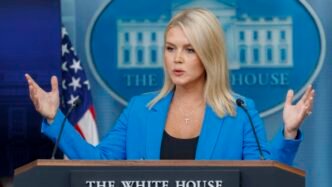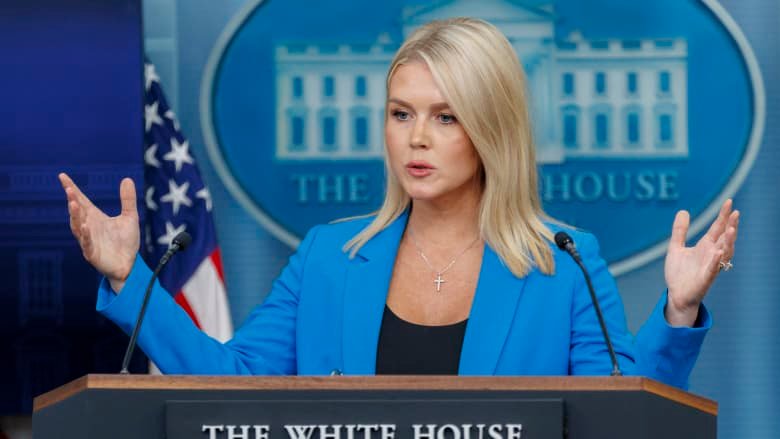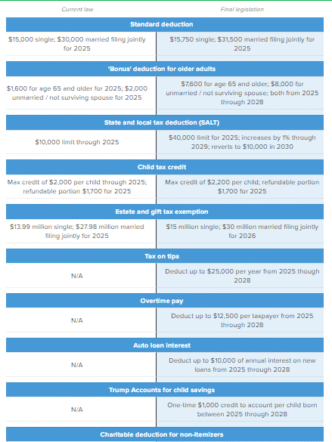WASHINGTON (Analysis) – The White House is waging an all-out political war to pass its signature legislative priority, a sweeping economic package that President Donald Trump has personally dubbed the “big, beautiful bill.” Formally known as the “American Prosperity and Security Act,” the legislation has become the centerpiece of the administration’s agenda and a defining political test for both parties.
But as the vote nears, the intense pressure campaign from the West Wing has transformed a policy debate into a loyalty test, forcing lawmakers to confront a stark question: What does it truly mean to vote ‘no’ against the president’s top priority?
For supporters, the bill is a revolutionary plan to unshackle the American economy. For opponents, it’s a reckless gamble with potentially devastating consequences. Here’s a breakdown of the high-stakes conflict.
What Is in the ‘Big, Beautiful’ Bill?
The legislation is a massive omnibus bill that bundles together several key administration goals:
-
Permanent Tax Cuts: It seeks to make the individual tax cuts passed in Trump’s first term permanent, while also introducing a further deep cut to the corporate tax rate.
-
Sweeping Deregulation: The bill would slash federal regulations across the energy, finance, and environmental sectors, a move the administration claims will spur investment and job growth.
-
Universal Tariffs: A highly controversial provision would grant the president broad authority to impose a baseline tariff on all imported goods, with even steeper tariffs on products from strategic rivals like China.
-
Infrastructure Funding: To win bipartisan support, the bill includes funding for roads, bridges, and rural broadband, but it is tied to the deregulation and tax cut provisions.
The White House’s Political ‘War’
The administration is leaving nothing to chance, deploying a strategy that combines public persuasion with private pressure. President Trump has held multiple rallies in the home states of wavering senators, calling them out by name and urging his supporters to “let them know you’re watching.”
“This isn’t just another bill. This is a vote on whether you believe in America First or America Last,” Trump declared at a recent rally in Ohio. “Anyone who votes against it is voting against your jobs, your security, and your future.”
Behind the scenes, the pressure is even more intense. Lawmakers have reported direct calls from the president, and White House officials have made it clear that a ‘no’ vote will result in consequences, including the loss of committee assignments, a lack of support for pet projects, and the very real threat of a Trump-backed primary challenger in the next election cycle.
What It Means to Vote ‘No’
For lawmakers, particularly Republicans, voting against the bill carries immense political and personal risk.
-
Risk of Political Exile: A Republican who votes ‘no’ risks being branded a “RINO” (Republican In Name Only) by the president and his powerful media allies. They would instantly become a target for the party’s base and would likely face a well-funded primary opponent. This vote is being framed as the ultimate test of loyalty to the MAGA movement.
-
Alienating the Party: A ‘no’ vote means defying the entire party leadership, which has staked its reputation on passing the bill. This could lead to being ostracized within the Republican conference, losing influence and the ability to legislate effectively.
-
Answering to Voters: Supporters of the bill argue that a ‘no’ vote is a vote against economic growth and national strength. Lawmakers would have to return to their districts and explain why they opposed tax cuts and American manufacturing protections, a difficult message to sell in conservative areas.
For Democrats, the calculation is different but no less significant. Voting ‘no’ is an easy choice for most, as it aligns with their party’s platform of opposing tax cuts for the wealthy and deregulation. However, for Democrats in swing states, the decision is tougher. They risk being painted as obstructionists who are standing in the way of economic progress.
The Economic Stakes
Beyond the political theater, economists are deeply divided on the bill’s potential impact.
-
The Administration’s Argument: The White House and its allies at conservative think tanks argue the combination of tax cuts and deregulation will unleash a historic economic boom, leading to higher wages and a resurgence in domestic manufacturing as tariffs make foreign goods more expensive.
-
The Opposition’s Warning: Independent analyses, including a preliminary report from the non-partisan Congressional Budget Office, warn the bill could significantly increase the national debt. Economists at institutions like the Peterson Institute for International Economics predict the tariffs would spark a global trade war, raising prices for American consumers on everyday goods and devastating U.S. exporters like farmers.
As the final vote approaches, Washington is holding its breath. The passage or failure of the “big, beautiful bill” will not only shape the American economy for years to come but will also serve as a defining moment in a presidency that has consistently demanded total loyalty. For the lawmakers caught in the middle, their vote will be a career-defining choice between party, president, and principle.





